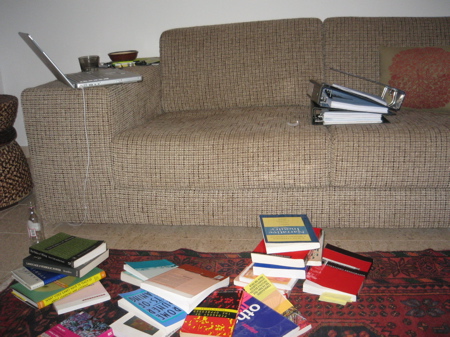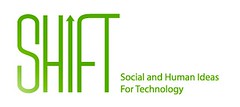The literature review

The Internet was down most of today so there was no getting away from it. I got stuck into the CIRN Prato conference where I'm co-writing a paper with Patricia Arnold and John Smith about "Memory and Forgetting: a review of narrative and technologies". The conference theme is: "Constructing and sharing memory: community informatics, identity and empowerment".
The deadline was today, but although we meet regularly on Skype (PT, DE, US) to talk about it and take notes, things didn't really start coming together until last night - and we got our request for an extension. It clicked once we framed memory in terms of voice and power. Who's voice is being heard? Whose story is being told? And whose is being left out? So whose memory is it?
My favourite quote from today came from Robin Usher et al (who clearly don't know my local universe):
“The quest for a ‘God’s eye view’, a disembodied and disembedded timeless perspective that can know the world by transcending it, is no longer readily accepted. What has taken its place is a loss of certainty in ways of knowing and what is known. What we are left with is not an alternative and more secure foundation but an awareness of the complexity, historical contingency and fragility of the practices through which knowledge is constructed about ourselves and the world.” (p. 210)
And these were some of my reflections on memory with this post-modern lens:
• Memories are produced through a process of languaging. Language is not a mirror held up to past experiences, it’s not a transparent vehicle for conveying memory. Memory can’t be separated from language, discourses and texts at work within culture. Language, discourses and texts are both the carriers and creators of memory.
• Memory is always partial and perpectival; it’s always shaped by language and discourse; it’s always situated within specific cultures which provide meaning and significance.
• We have to be self-reflexive about memory. We have to consider the implication of memory and power and unspoken values and the effects, or politics, of memory.
• Memory is a kind of story-telling – “constructing” and “reconstructing”. The advantage to seeing memory like this is that it foregrounds the illuminative, insightful and emancipatory possibilities of story-telling. But it can also be oppressive and dangerous.
Usher, R., Bryant, I. & Johnston, R. (1997) Adult Education and the Postmodern challenge: learning beyond the limits.London & New York, Routledge.
Tags: CIRNPrato06, pratonarrative, memory











